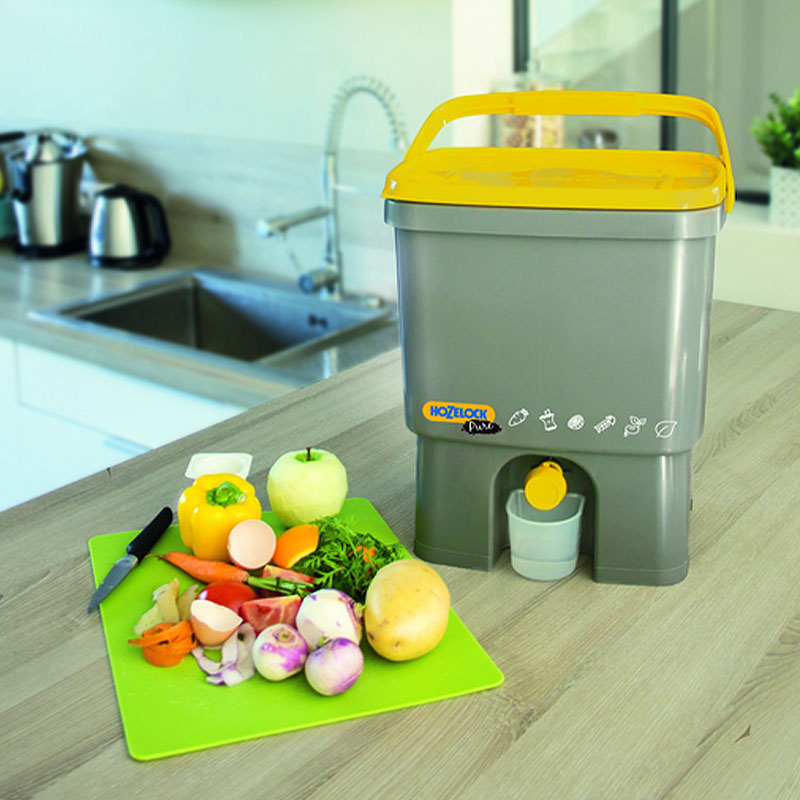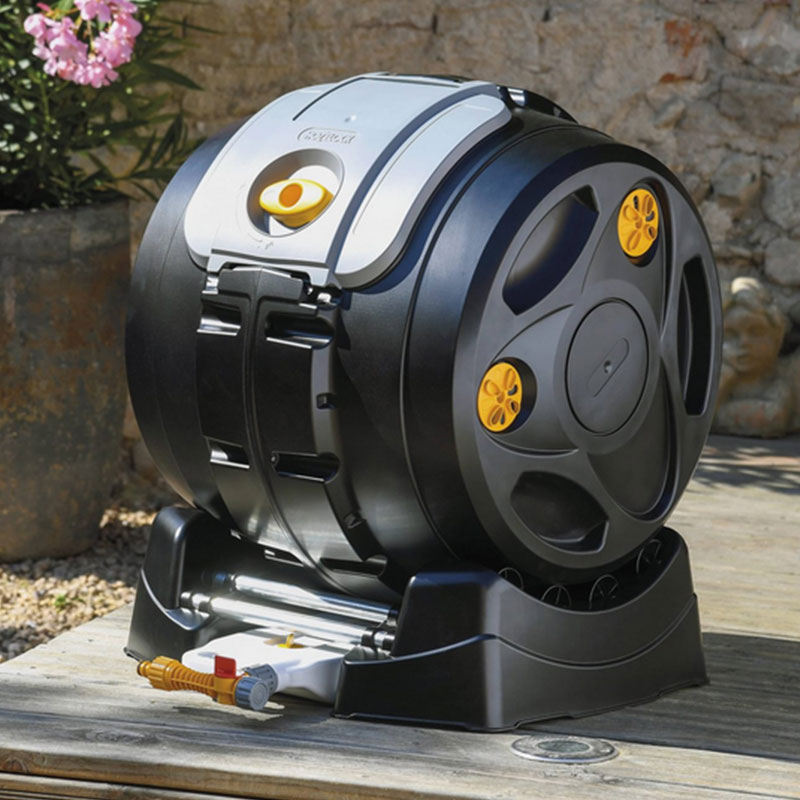Make The Ultimate Homemade Compost
Homemade compost is invaluable for your garden. It makes a great mulch, soil improver, even to use as a growing medium. Compost piles and compost bins provide shelter for wildlife to set up homes. You can find anything from worms and bumblebees to hedgehogs, slow worms and even hibernating predatory insects, like green shield bugs.
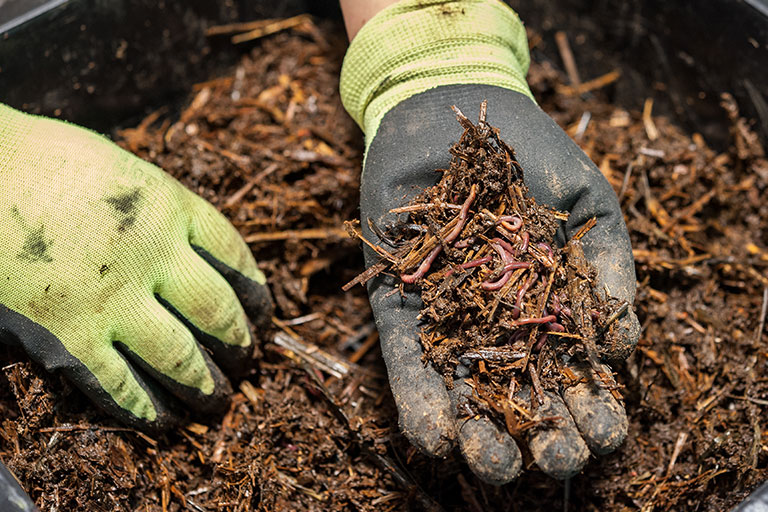
To make the ultimate homemade compost yourself, you need a 50:50 mix of materials that are rich in nitrogen and carbon:
- Nitrogen comes from lush, green material such as grass clippings.
- Carbon comes from brown material, such as woody stems and even cardboard.
- For every bucket load of green material, you need to add the same volume of brown.
Garden tip: For anything woody that you add, break it down or shred it before adding them so that they break down more easily. Scrumple paper and leave egg boxes or loo rolls intact – these help to keep the compost aerated.
Free What To Compost Download
We’ve put this free downloadable compost guide together to help you add the right mix of popular household items. Use it to help you make the ultimate homemade compost yourself.
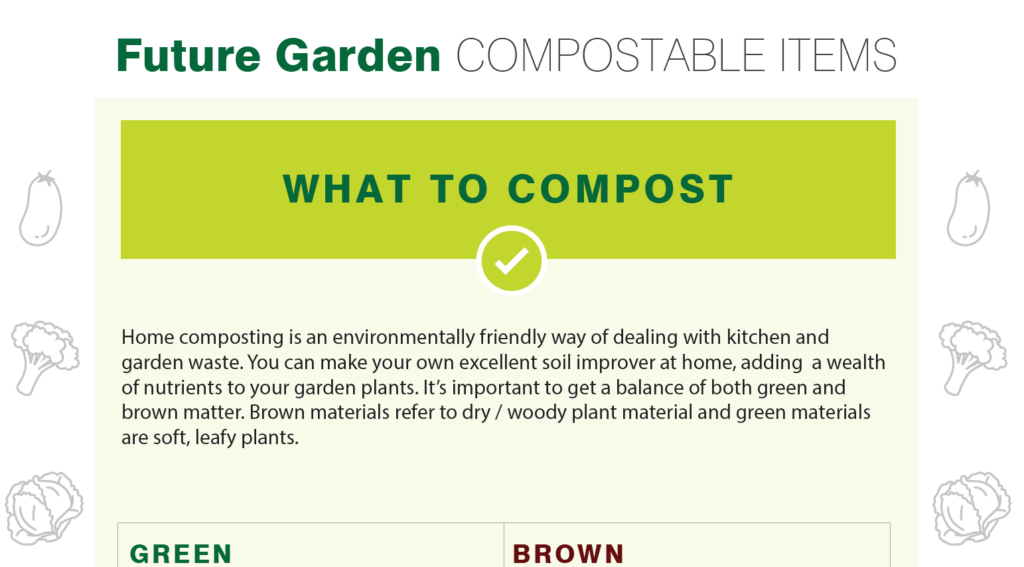
Free What To Compost Download
Collect Your Kitchen Scraps
The first step in any composting journey is to collect your kitchen scraps. Using products like the Hozelock Bokashi Composter and Bokashi Bran helps to start the composting process before you add it to your compost bin. You can also use the liquid from the Bokashi composter to use as a liquid nutrient to feed house and garden plants.
Garden tip: The liquid from the Bokashi Composter is perfect to use with the Hozelock Pure sprayer system.
Too Much Nitrogen In Homemade Compost Isn’t Good
Most compost bins have too much nitrogen. This will be the case, especially if you’re adding lots of grass cuttings. If you put lots of grass clippings in your compost without adding equal amounts of brown materials, go and have a look at your compost pile. Put a garden fork in the top, you’ll probably find it’s dry. Dig down a couple of inches, and you’ll soon find a smelly mass of sludgy clippings. On the other hand, if you have too much brown, carbon material in your bin, the composting process will be prohibitively slow.
Keep reading for 4 quick tips to make the ultimate homemade compost.
4 Quick Tips To Make The Ultimate Homemade Compost
1. Put Your Compost Bin Directly On Soil
It’s important to stand your compost bin directly on the soil. The soil is alive with worms and other microorganisms that work to digest and help to speed up the composting process (all for free).
Garden tip: Use chicken wire at the base of your bin to keep rodents out. Avoid using cooked produce, as it can attract rodents. If you do get issues with rodents, use a Deadfast Rodent Bait Station to control them.
To start your compost off, add an equal mix of green and brown materials.
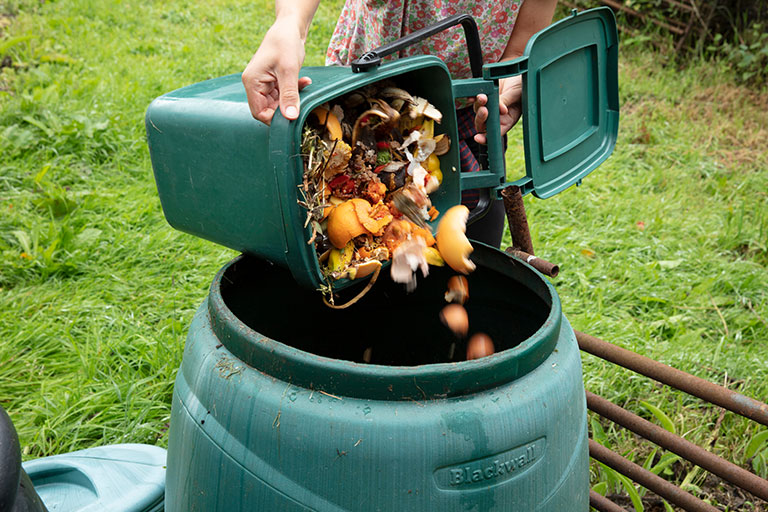
2. Regularly Turn Your Homemade Compost Piles Over To Mix the Contents
Once you have material in your compost bin, it’s vital to mix the contents. Mixing compost helps the tiny organisms, microbes, and enzymes to work on the fresh material. It works to speed up the composting process. It helps to break matter down and create the ultimate homemade compost, and much quicker.
The composting process is aerobic, it requires oxygen, so aerate it. Mix the outside ingredients with the inside and cover your compost bin to keep the rain out.
Garden tip: To make turning your compost really easy, use a Hozelock EasyMix 2-in-1 Tumbling Composter. This rotating composter is a gardening revolution (literally). It makes mixing and creating your own compost at home really easy and lowers your carbon footprint. You can even
3. When Is My Homemade Compost Ready?
When the mixed compost turns brown, crumbly, and slightly sweet smelling, the process is complete. If you’ve been regularly turning your homemade compost, the composting process takes 4- to 6-months. But it can take much longer.
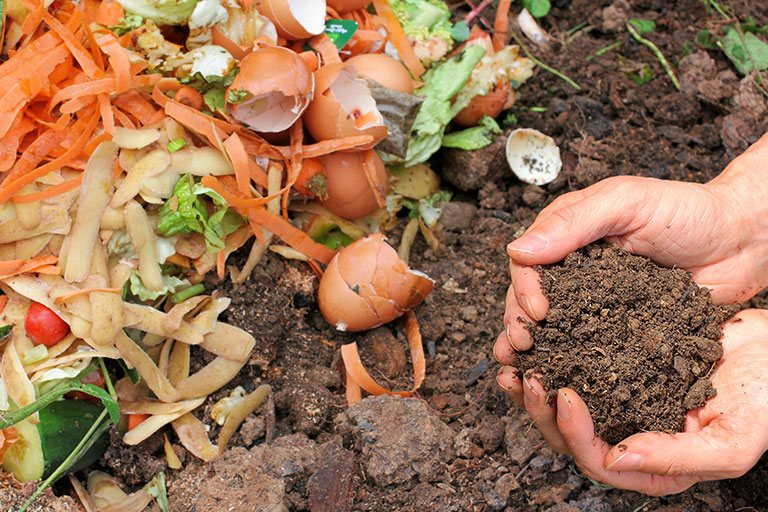
4. Use The Free “Compostable Items” Download
Use the free “Compostable Items” download to guide you as to what to compost and what not to add to your compost bin.

